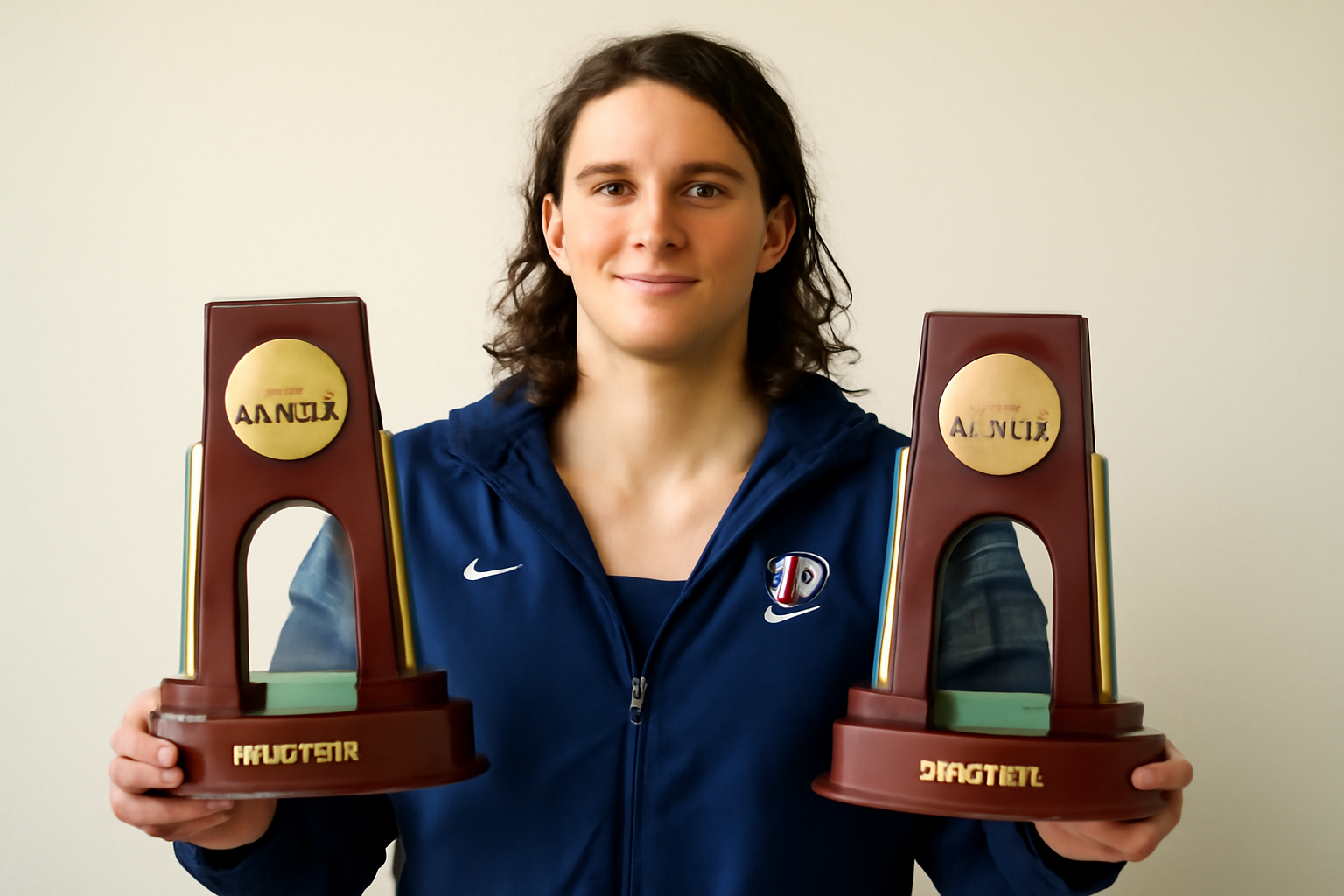
Recently, a big stir erupted when news broke that federal officials are urging UPenn (University of Pennsylvania) to return NCAA swimming championship trophies and titles associated with former swimmer Lia Thomas. This controversy centers on Lia's journey as a transgender athlete, starting her college swimming career on UPenn's men's team before transitioning and competing with women.
Lia Thomas: Competing by following every rule
Lia Thomas competed according to all NCAA regulations, which oversee college sports. She didn't make these rules; she simply played by them and won fair and square. Now, this administration wants UPenn to hand back her medals and apologize, sparking heated debates across various circles.
The main argument from those in charge claims UPenn's actions might have crossed a line with federal law, especially Title IX, which bans sex-based discrimination in any school getting federal funds. They believe that letting an athlete, born male, compete in women's events might breach this law.
Changing history?
The Department of Education has suggested that UPenn should wipe Lia Thomas's victories from their records, realign with federal law, redistribute her awards to those initially born as females, and offer apologies. Although Reuters didn't bring up Lia Thomas's name directly, it's clear she's at the center of this suggestion.
There are whispers that if UPenn, together with NCAA and Ivy League, comply with these requests, Emma Weyant from UVA might retroactively receive the NCAA title claimed by Thomas. They've given UPenn a short 10 days to reply before they consider taking legal action.
Rules constantly shifting and what it means
Recognize that sports regulation isn't static. The rules have changed, and under today's guidelines, Lia Thomas wouldn't have been eligible in women's events. Yet, she played by what was the rulebook back then. Should we hold her accountable by today's standards?
Regulations in sports and many other areas are always evolving. It naturally brings up questions about fairness, especially when past victories come under the microscope. Do we erase history just because it doesn't fit the new paradigm?
Pointing fingers in the wrong direction?
Some believe that federal focus should shift elsewhere. If there were faulty rules, then those who crafted them, like the NCAA, should shoulder any blame—not Lia Thomas or UPenn, who stuck close to all guidelines.
The NCAA, with its vast network that includes the Ivy League, crafted the playing field. If there's scrutiny needed, perhaps it should be on this organization if rules were indeed lacking.
Lia Thomas's story stretches beyond athletics, touching deep issues about fairness, evolving laws, and the rights of transgender athletes. While discussions persist, many call for an approach that respects past triumphs yet remains open to the changing nature of sports competition.
Ultimately, Lia Thomas and UPenn just followed the rulebook provided. Ensuring fairness and justice is largely on those who make those rules. This scenario pushes us to think about how we honor past wins while embracing new benchmarks.
Related Posts
Trailblazing Paths: The Quiet Beginnings and Evolution of LGBTQ+ Adoption Rights
Bill Jones: Paving New Paths in LGBTQ+ Adoption On an otherwise ordinary day in February 1969, something extraordinary happened at San Francisco City Hall—Bill Jones became America’s first single man legally allowed by law, not just by heart, adopted a child. This wasn't just a personal milestone; it was a seismic shift that opened doors previously bolted shut against LGBTQ+ people yearni [...]
Navigating Healthcare as a Trans Patient: A Personal Experience
**Transgender Healthcare Challenges: A Personal Journey** Understanding healthcare hurdles faced by transgender individuals Life has a funny (and often frustrating) habit. Just when you think society's turning a corner on civil and human rights, reality gives you a wake-up call. Transgender folks, in particular, still face a gauntlet when it comes time simply getting medical care. Sure, there's [...]
Queer Ecologists: Innovators in the Climate Movement
Finding self and solace in nature: Chochotte's path Chochotte grew up in France, not really feeling out-of-place until he did. As a kid, he was just another boy, enjoying life with his mom and sisters, who fostered his love affair with gardening and forest strolls. But then, teenage years hit hard, didn't they? His friends started raising eyebrows at his ‘girly' interests—an obsession with fl [...]